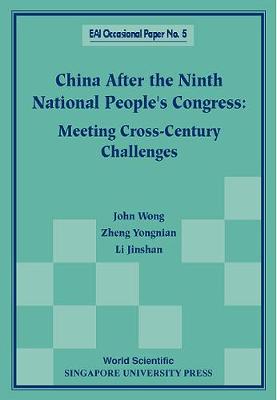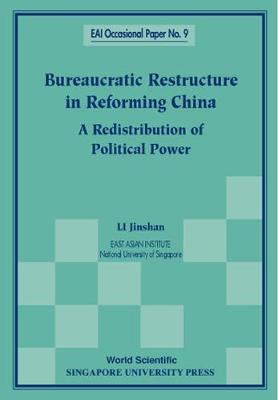East Asian Institute Contemporary China
2 primary works
Book 5
China After The Ninth National People's Congress: Meeting Cross-century Challenges
by John Wong, Yongnian Zheng, and Jinshan Li
Published 9 July 1998
China's Ninth National People's Congress (NPC), convened in March 1998, established a new NPC and a new cabinet. Is NPC still much like a “rubber stamp” as before? Will the new chairman, Li Peng, follow his predecessor, Qiao Shi, use it as a base to expand his power in competition with Jiang Zemin and Zhu Rongji? More importantly, Zhu Rongji is now the new premier. What are his development strategies for China's economy? He has set out to shake up China's unwieldy bureaucracy and to reform its loss-making state-owned enterprises. Can he still accomplish his ambitions in the face of rising unemployment (xiagang)? How will Jiang Zemin manage his relations with both Li Peng and Zhu Rongji?Based on an in-depth analysis of the latest developments in China, this Occasional Paper contains three separate articles, addressing the above issues in order to provide a new perspective on China's fast-changing political economy in the post-Deng era.
Book 9
Bureaucratic Restructure In Reforming China: A Redistribution Of Political Power
by Jinshan Li
Published 17 December 1998
Since the introduction of the Dengist reform in the late 1970s, the state bureaucracy in China has experienced four major restructurings, each of which entailed the redistribution of political power. According to the purpose and scale of reorganization, the restructuring of the State Council can be divided into two stages. At the first stage, covering the period 1982 to 1997, Deng Xiaoping and his Executives, Zhao Ziyang and Li Peng, restructured part of the government administration in order to integrate market forces into the central-planning system. The integration was not smooth because of the struggles between reformers and conservatives, so the restructuring met with a backlash. After the Ninth National People's Congress in March 1998, the restructuring has entered its second stage, characterized by a radical retrenchment of government organizations and employees both at the central and local levels. In carrying this out, Zhu Rongji intends to relinquish government links with enterprises, thus pushing the “socialist market economy” further ahead.

